Mahesh Bhatt
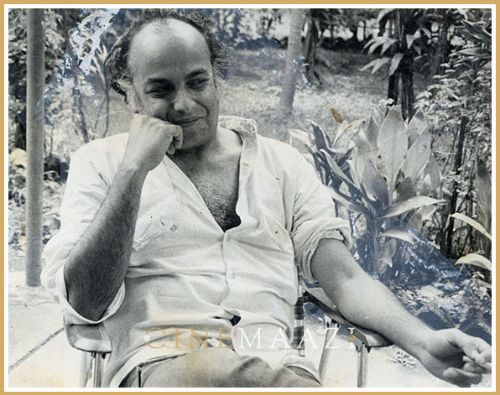
Subscribe to read full article
This section is for paid subscribers only. Our subscription is only $37/- for one full year.
You get unlimited access to all paid section and features on the website with this subscription.
Not ready for a full subscription?
You can access this article for $2 , and have it saved to your account for one year.
- Born: 20 September 1948 (..)
- Primary Cinema: Hindi
- Parents: Shirin Mohammad Ali and Nanabhai Bhatt
- Spouse: Lorraine Bright/ Kiran Bhatt (divorced), Soni Razdan
- Children: Pooja Bhatt, Rahul Bhatt, Shaheen Bhatt, Alia Bhatt
One of Hindi cinema’s most critically acclaimed as well as popularly accepted directors, Mahesh Bhatt is celebrated for his unconventional style of filmmaking as well as his unique depiction of subjects, which reflect many of his life experiences. An outstanding director, producer and screen writer, the straight-talking filmmaker has never shied away from controversy. He has often chosen subjects that were ahead of the times, creating compelling films such as Arth (1982) depicting a marriage destroyed by infidelity; Saaransh (1984) about an elderly couple coming to terms with the loss of their only son; Naam (1986) which revolved around two brothers taking contrasting paths; Daddy (1989) depicting a young girl who helps her father overcome his alcoholism; the intense love story Aashiqui (1990); the road movie filled with memorable moments - Dil Hai Ke Manta Nahin (1991); Sadak (1991) which told the tale of a taxi driver trying to help a young woman sold into prostitution; the heart-warming Hum Hain Rahi Pyar Ke (1993); the powerful drama Zakhm (1999) about a Hindu man fighting to give his Muslim mother a proper burial; and the supernatural horror Raaz (2002). With a forte for making films with complex and unconventional storylines, he injected a new freshness into the Hindi cinema of the 1980s and 1990s. Unlike the standard films of the time, Bhatt’s films touched upon sensitive issues of relationships, their complications, and more. He is also one of the rare filmmakers who provided a glimpse into his own life via his films. Directing art-house works such as Daddy (1989) and Swayam (1991), he has also delivered commercial hits like Awaargi (1990), Aashiqui (1990), Dil Hai Ki Manta Nahin (1991) and Sadak (1991). His works have also earned several prestigious awards: he won the National film award – special jury award for directing Hum Hain Rahi Pyar Ke (1993), his directorial Tamanna (1996) won the National film award for best film on other social issues, and his autobiographical (1999) won the Nargis Dutt award for best feature film on national integration. His directorial Saaransh was India’s official submission for the Oscars for best foreign language film. Known for mentoring actors, he is credited with launching many artistes and musicians, including Anupam Kher, Sonali Bendre, Sushmita Sen, Emraan Hashmi and Kangana Ranaut. He co-owned the film producing company Vishesh Films with his brother Mukesh Bhatt; in May 2021, it was publicly announced that Mahesh Bhatt was no more associated with the firm.
Born on 20 September 1948, Bhatt was the child of actress Shirin Mohammad Ali and prolific filmmaker Nanabhai Bhatt. He would later call himself “the bastard-child of a single Muslim mother,” also revealing, “My father had another family. Although my father had two homes, he paid for our education and household expenses. When my friends teased me about my father not being at home, I never said he was busy with his film business; rather, I made it clear that he had another home. Despite my pent-up anger, I recognised that there was a bond between my parents which had legitimacy in the heart.”
He attended Don Bosco High School, Matunga, and credits the priests with grooming him well. A dreamer, films were his escape. While still in school, he started summer jobs to earn money, from selling car fresheners to tightening nuts and bolts. When he received his first salary – Rs 53, he handed it over to his mother, the “driving force” of his life.
Venturing into advertising, he made product ads for brands like Dalda and Lifebuoy. His tryst with films began after a meeting with filmmaker Raj Khosla through a cousin. Khosla asked him what he knew about films; Bhatt replied, ‘Zero’. “Zero is a brilliant figure to begin with,” Khosla responded, and took him on as an assistant director.
At 26, he made his debut as a director with the film, Manzilein Aur Bhi Hain (1974). A crime thriller starring Kabir Bedi, Prema Narayan and Gulshan Arora in the lead roles, the plot revolved around two fugitives and their relationship with a prostitute. The film was completed in 1972 but was initially refused a censor certificate for “mocking the sacred institution of marriage”. It received neither critical nor commercial success. It would take a decade and four more unsuccessful directorials before he made his confessional cinema classic – the critically and commercially successful Arth (1982), as no distributor was willing to invest money in this experimental film. Starring Shabana Azmi and Kulbhushan Kharbanda in lead roles along with Smita Patil, Raj Kiran and Rohini Hattangadi, the semi-autobiographical film was written by Bhatt based on his extramarital relationship with Parveen Babi. The film also featured some of the most memorable soundtracks by ghazal duo, Jagjit Singh and Chitra Singh. Made on an approximate budget of Rs 1 crore, it grossed Rs 2 crore at the box-office and was declared a hit. It also won two National awards – best actress for Shabana Azmi and best editing for Keshav Hirani.
Saaransh, which followed in 1984, brought him enormous critical acclaim. It revolved around an old couple who lends a room on rent after the recent death of the bread-winner of the family - their only son. A budding actress starts living with them, who is in love with a local politician's only son. The film traces what later ensues. Coming after the success of Arth (1982), the critical acclaim of Saaransh established Bhatt as a director of repute. It was described as Bhatt’s "finest film – moving, mellow, and mature – as the viewer feels the pain and despair of an elderly couple..." Amidst the general decline of content in mainstream cinema seen in the 1980s, Saaransh is among the few films that stands out in "middle-of-the-road" films of the decade. Among other National awards, it won Bhatt the honours for best story.
His crime-thriller Naam (1986) starring Kumar Gaurav and Sanjay Dutt followed the story of Vicky, who gets entrapped in a criminal plot after he leaves his country for work. The film is regarded as a milestone in the careers of not just Bhatt but also Paresh Rawal and Sanjay Dutt. A blockbuster at the Indian box office, it played for over a year at a majority of India's cinemas and stands as one of the high-grossing Hindi films of the 1980s. The soundtrack for the film also contributed to its huge success, with Chithi aayi hai also being selected as one of the 100 songs of the millennium by BBC Radio worldwide.
His 1989 TV film Daddy marked the acting debut of his daughter Pooja Bhatt, who plays the loving and supportive daughter of an alcoholic father, who is successful in helping him overcome his challenges. The film boasted spectacular performances by its cast including Pooja Bhatt, Anupam Kher and Manohar Singh.
Another major success was his musical romance film Aashiqui (1990), in collaboration with T-Series, which was reportedly inspired by his own romance with Lorraine Bright aka Kiran Bhatt. It told the love story of Rahul and Anu who have multiple personal problems to deal with before they can unite. The film launched Rahul Roy, Anu Aggarwal, and Deepak Tijori in the lead roles and became a major commercial success due to the hugely popular soundtrack by Nadeem-Shravan, which catapulted the music director duo to fame.
Bhatt launched his daughter Pooja on the big screen as a lead actress opposite Aamir Khan in Dil Hai Ki Manta Nahin (1991). An adventure comedy drama, it revolved around a runaway heiress in search of her beloved, who falls in love with another man on the way. The film was a commercial success and also acclaimed for its popular soundtrack.
The same year, he delivered another thumping hit – Sadak, starring Sanjay Dutt and Pooja Bhatt. The film also cast Sadashiv Amrapurkar in an award-winning performance as the film's villain, Maharani. One of the highest-grossing films of 1991, the action drama depicted a taxi driver with a tragic past who sees an opportunity for redemption when he encounters a woman sold into prostitution. Wanting to help her escape, he has to deal with the wrath of the brothel madam.
With Sir (1993), he cast newcomer Atul Agnihotri opposite Pooja Bhatt in the film which featured Naseeruddin Shah in the title role of an aspiring and dedicated teacher. The film was a commercial success and gained critical acclaim for Bhatt's direction, the acting of the cast, including Paresh Rawal, and the popular soundtrack byAnu Malik.
His directorial Hum Hain Rahi Pyar Ke (1993) received the National film award – special jury award/ special mention (feature film), and the Filmfare award for best film. A super-hit at the box office, it was also one of the biggest hits of the year and was also critically acclaimed for the performances of Juhi Chawla and Aamir Khan. The romantic comedy drama depicted a man, who is caring for his late sister's children, and is torn between true love and saving his floundering factory.
The same year, he also directed Sridevi and Sanjay Dutt in Gumrah (1993), an action crime drama about an aspiring singer who is abandoned by the man she loves and is arrested by the police in Hong Kong for alleged involvement in drug-trafficking. Critically well-received, it was also a commercial success.
He directed dramas such as Naajayaz (1995), starring Ajay Devgn, Naseeruddin Shah and Juhi Chawla; Dastak (1996), which marked the debut of Miss Universe 1994-turned-actress Sushmita Sen; Tamanna (1997); Zakhm (1998) based on the Mumbai riots of 1993; and Kartoos (1999). Post its release, he retired as a director and took to screenwriting, penning stories and screenplays for over 20 films, many of which were box-office successes, including Dushman (1998), Raaz (2002), Murder (2004), Gangster (2006), and Woh Lamhe (2006), which was based on the life of actress Parveen Babi.
After a long hiatus, he returned to wield the directorial baton for Sadak – 2 (2020), which picks up where Sadak left off, revolving around the journey with a young girl who becomes an important character in the life of the protagonist, and the reason for him to stay alive. The film sank at the box office.
As part of Vishesh Films, along with his brother Mukesh Bhatt, he produced many successful films. In 2021, the brothers parted ways professionally, with their banner now controlled and run by Mukesh Bhatt with his children, Sakshi and Vishesh.
In 1995, Bhatt had also ventured into the budding space of television, making two TV series, namely the English language A Mouthful of Sky written by Ashok Banker and the popular Hindi language serial Swabhimaan scripted by the author Shobha De. He directed another TV series, Kabhie Kabhie, in 1997 which was written by Anurag Kashyap, Vinta Nanda and Kamlesh Kunti Singh, among other serials. In the 1990s, he also hosted some episodes of the science magazine programmes - Turning Point and Imaging Science on Doordarshan.
In the realm of theatre, he has produced plays such as The Last Salute, The Trial of Errors, Angaar, Daddy, and 7:30 Ki Ladies Special. Speaking about the power of theatre, he has maintained, “I have consistently believed that a play or a movie can be a better tool for promoting peace than all the lectures we deliver. Any message may be conveyed effectively through narrative.”
Over the past several decades, Bhatt has shown tremendous commitment to confronting challenging issues around human health and social justice. He also speaks vociferously against communalism. He is also a member of the advisory board of US nonprofit TeachAids, wherein he advises on strategic outreach efforts in order to draw-in rural and urban population for the initiative.
Over the years, he had briefly been one of the early followers of self-styled spiritual guru Osho Rajneesh. Later, he found spiritual companionship and guidance with philosopher U G Krishnamurti, on whom he also penned two books - U.G. Krishnamurti: A Life and A Taste of Life: The Last Days of U.G. Krishnamurti.
In 1970, Bhatt had married Lorraine Bright (name later changed to Kiran Bhatt). The couple's daughter Pooja Bhatt is a well-known actress and filmmaker, while son Rahul is a celebrity fitness trainer. In the 1970s, Bhatt began an affair with leading actress, Parveen Babi. In an old interview, he shared, “My relationship with Parveen began around 1977. She had returned to India from Italy (after she broke up with Kabir Bedi subsequent to his becoming a sensation in Italy with the TV show Sandokan). She was a top star and was filming for Amar Akbar Anthony (1977) and Kala Pathar (1979) those days, while I was a flop filmmaker. I left my wife Lorraine Bright and my daughter Pooja, who was a kid then, to live in with Parveen.” The affair did not last long. In 1986, he married Soni Razdan. They have two daughters - Shaheen Bhatt and popular actress Alia Bhatt. Bhatt is also the uncle of Hindi film actor Emraan Hashmi and filmmakers Mohit Suri and Milan Luthria. Hashmi is his cousin Anwar's son, Suri is his sister Heena's son and Luthria is his mother Shirin's grand-nephew.
Talking about the quality of the narratives currently in Hindi films, Bhatt said these have gone down even as technological progress had taken the films to global standards. “The mainstream is not as adventurous as our predecessors used to be. If you look at the stories of the people in the past, they were very brave people who went against the tide and told stories in their own unique way. They did not worry so much about whether it will work or not work. We have today lost the spark of being unique and distinct. We are frightened of being ourselves.”









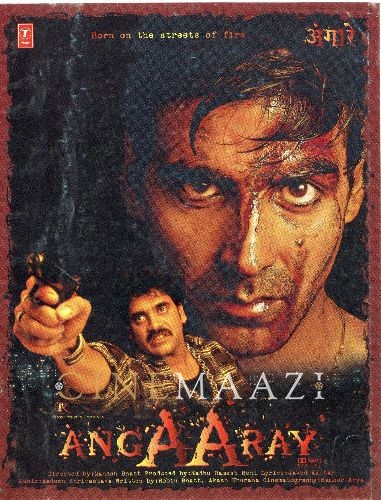






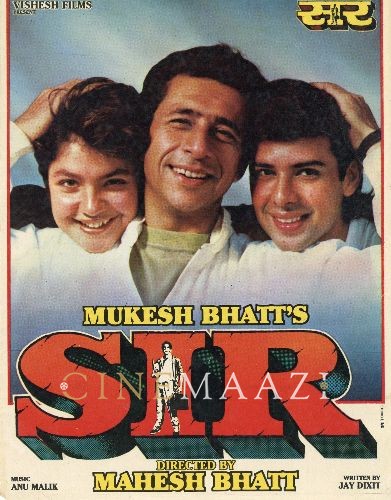

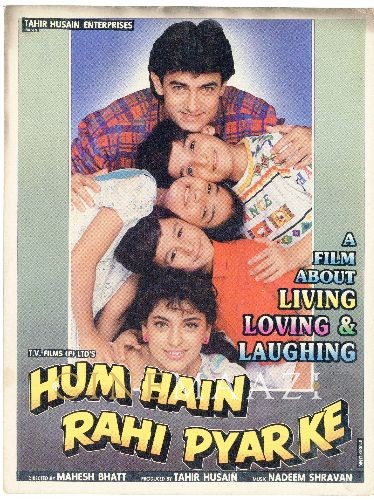
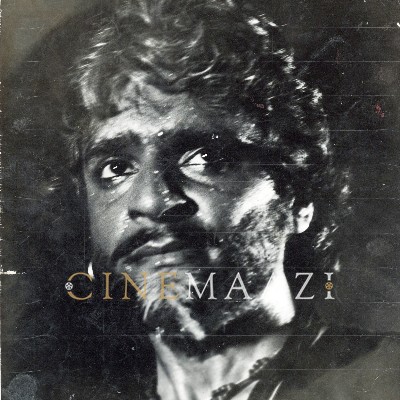

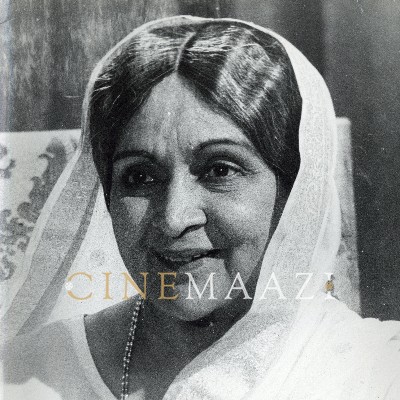
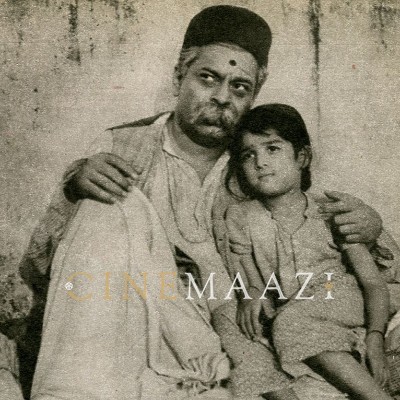

.jpg)



